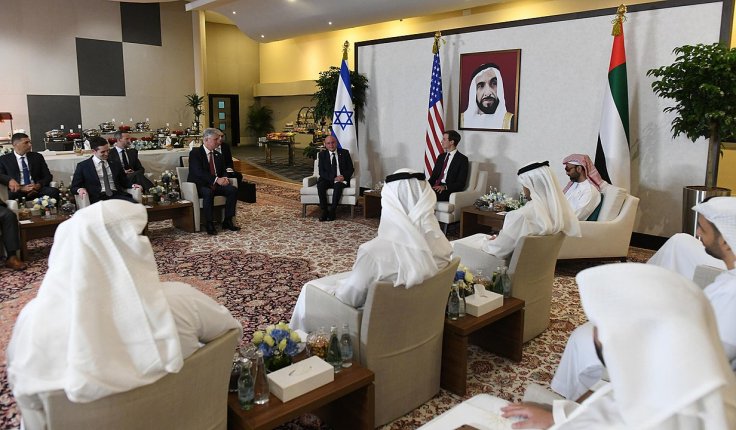Five more countries are likely to arrive at a normalization deal with Israel in an ongoing, historic shake-up of the power balance in the Middle East. The White House statement comes in the aftermath of the United Arab Emirates and Bahrain officially establishing links with the Jewish state in a landmark deal brokered by US President Donald Trump.
The White House did not wager a bet on which countries are going to establish diplomatic links with Israel next, though rumors are rife that Oman is one of them. President Trump, who has pushed the Israel-UAE deal as a huge foreign policy achievement ahead of the November 3 elections, has said Saudi Arabia will also follow suit.

Meanwhile, a top Palestininian Authority official has said the five countries are Oman, Sudan, Comoros, Djibouti and Mauritania. These countries are engaged in discussins with Tel Aviv, Palestinian Authority Social Affairs Minister Ahmed Majdalani said on Thursday, the Jerusalem Post reported, citing KAN Radio.
UAE, Israel and UAE Get Down to Work
The PA, Iran and Turkey have denounced the UAE-Israel deal. "The attitude that there can be peace with the Arabs without peace with the Palestinians is an illusion," Majdalani said.
Following the official normalization of ties Israel, UAE and Bahrain have kickstarted ministerial level negotiations to get the deal working on the lower rungs. UAE's Minister of State for Food Security telephoned Israeli Agriculture Minister Alon Schuster to pass on Rosh Hashanah greetings, while the tourism ministers of Israel and Bahrain have started talking about mutually beneficially ventures. They also discussed the possibility of implementing a three-way travel package involving the United Arab Emirates, the JPost reported.
The Israel-UAE peace deal, which was announced in August, is the first peace agreement between Israel and an Arab country in the last 25 years. "President Donald Trump, Prime Minister Benjamin Netanyahu of Israel and Sheikh Mohammed Bin Zayed, Crown Prince of Abu Dhabi and Deputy Supreme Commander of the UAE spoke today and agreed to full normalization of relations between Israel and UAE," a joint statement said.
Prime Minister Netanyahu and President Trump said that the US-brokered deal represented a "historic day" for his country. "After 49 years, Israel and the United Arab Emirates will fully normalise their diplomatic relations -- This is a truly historic moment," Trump said.
Will Saudi Arabia Join Too?
It isn't yet clear if Saudi Arabia will join other Gulf kingdoms in reaching a deal with Israel. However, analysts are of the view that the United Arab Emirates would not have gone ahead with a deal without Riyadh's tacit consent. Speaking on Tuesday, President Trump too suggested that an Israeli deal with big Arab powers in the region is on the anvil.
"We'll have 7 or 8 or 9. We're going to have a lot of other countries joining us, including the big ones," Trump said.
Middle East observers think that Saudi Arabia is testing domestic waters by allowing smaller powers to get into a deal with Israel. They also note that there has been a mellowing of tone in the treatment of ISrael by top Saudi clerics in recent times. The growing enmity with Iran and the worsering struggle for one-upmanship in the region will also slowly push Saudi Arabia to Israeli embrace eventually, they think.
They also cite the call for interfaith dialogue by Mohammad Bin Salman, the de facto ruler of Saudi Arabia, as a sign of things to come.








